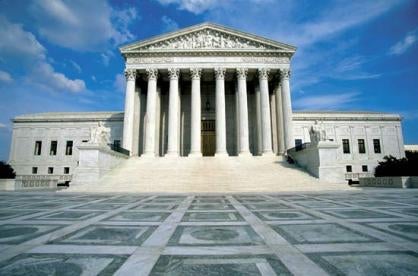When faced with a lawsuit, businesses and their attorneys value the protections afforded to them under the attorney-client privilege and work product privilege. Where typically parties must disclose all information and documents relevant to the lawsuit to each other as part of the discovery process, these privileges allow the business and attorney to withhold certain information and documents that otherwise may have to be disclosed. The Illinois Supreme Court had the opportunity to decide this year whether a new privilege, the self-critical analysis privilege, would be recognized in Illinois to protect documents created by businesses during internal reviews or investigations after an accident.
Harris v. One Hope United, Inc., 2015 IL 117200, arises out of the drowning death of a seven-month-old after being placed back into custody with her biological mother by One Hope United, an Illinois Department of Children and Family Services (DCFS) contractor. The lawsuit alleged One Hope United "failed to protect [the child] from abuse or neglect, and should not have allowed [the child] to be returned to her mother because of her unfavorable history and her failure to complete parenting classes." One Hope United, Inc., 2015 IL 117200. During discovery, the public guardian bringing the suit on behalf of the child's estate requested One Hope United produce its "Priority Review" report. Priority Review reports are created by a department within One Hope United that investigates cases, identifies gaps in services, and evaluates successfulness of the services. One Hope United refused to produce the report claiming the report was subject to the self-critical analysis privilege. The public guardian filed a motion to compel, which the trial court granted. One Hope United remained steadfast in its refusal to produce the report and as a result, the trial court found One Hope United's law firm "in 'friendly' contempt of court and fined it $1 per day." The law firm immediately appealed.
First recognized by the District Court of the District of Columbia in 1970, the original purpose of the self-critical analysis privilege was "to encourage candor when parties sought to improve their own procedures in providing medical care to patients." Since that time, the privilege has been applied in other factual settings to protect against the disclosure of documents with potentially damaging self-criticism that could significantly harm public interest. Although recognized at common law by some courts, many courts rejected the privilege so as not to "contravene the general rule in favor of admissibility." The Illinois legislature expressly adopted the self-critical analysis privilege in the 1980s, but within the limited scope of the Medical Studies Act, 735 ILCS 5/8-2101 et seq., for the purpose of improving hospital conditions and patient care.
One Hope United argued on appeal that applying the privilege in this case was consistent with the reasoning behind adoption of the privilege in the Medical Studies Act. The appellate court found the Medical Studies Act inapplicable to One Hope United and declined to extend the privilege beyond what was contemplated in the act. The appellate court affirmed the circuit court's ruling, refusing to recognize the self critical analysis privilege. It was now up to the Illinois Supreme Court to decide whether the privilege would exist at common law, extending to circumstances other than those expressly recognized in the Medical Studies Act.
Upon review, the Supreme Court noted the recognition of new evidentiary privileges as primarily a policymaking decision for the legislature and any judicial action recognizing a new privilege absent legislative action should be rare and only where supported by public policy. The court distinguished One Hope United's sought-out self-critical analysis privilege from the qualified privilege recognized in Illinois Educational Labor Relations Board v. Homer Community Consolidated School District No. 208, 132 Ill. 2d 29 (1989), which protects from disclosure the strategy deliberations of school boards and teachers' unions engaged in collective bargaining.
When deciding whether to recognize a new evidentiary privilege, the court in Homer identified the following requirements:
-
The communications originated in a confidence that they will not be disclosed
-
This element of confidentiality is essential to the full and satisfactory maintenance of the relation between the parties
-
The relation must be one which in the opinion of the community ought to be sedulously fostered
-
The injury that would inure to the relation by disclosure would be greater than the benefit thereby gained for the correct disposal of litigation.
Id. citing Homer, 132 Ill. 2d at 34. In applying these requirements, the court in Homer found all four requirements satisfied and pointing to similar exemptions under the Open Meetings Act and Freedom of Information Act, and provisions under the Illinois Educational Labor Relations Act and federal labor law as evidence of the legislature's intent to keep such information confidential and a broader public policy in favor of the same. One Hope United, 2015 IL 117200.
In One Hope United, the court did not find the same legislative intent and public policy with respect to the self-critical analysis privilege. The court found the legislature's acknowledgement of the privilege limited to the Medical Studies Act, thus indicating a legislative intent to limit the scope of the privilege. Finding insufficient legislative intent and the lack of public policy in favor the new privilege, the court refused to acknowledge the self-critical analysis privilege, affirmed the appellate court's ruling, and held the Priority Review report was to be disclosed to the opposing party.
Despite the Supreme Court's rejection of the self-critical analysis privilege at common law, businesses should continue to promptly investigate any accidents. This case, though, serves as a reminder to ensure internal investigations are focused, factual, and thorough because any documents created may be subject to disclosure in a later lawsuit.




 i
i


